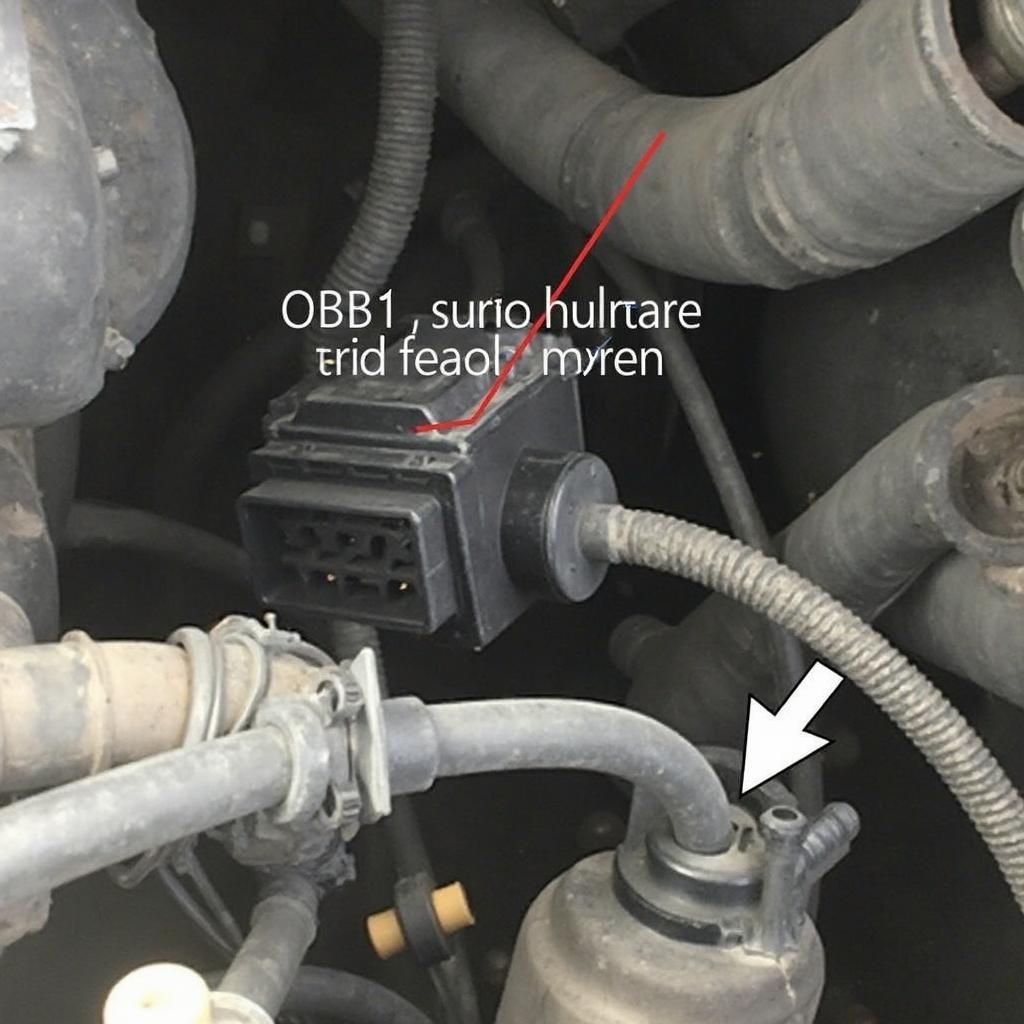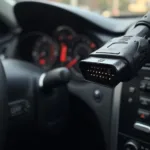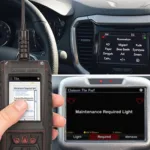The 1995 Chevrolet Astro van often leaves owners wondering, “95 Astro OBD1 or OBD2?” Understanding your van’s diagnostic system is crucial for maintenance and repairs. This guide provides a clear answer and explores the differences between OBD1 and OBD2, focusing on the 1995 Astro.
Decoding the 1995 Astro’s Diagnostic System
The 1995 Chevrolet Astro uses the OBD1 system. While the transition to OBD2 began in 1994 for some manufacturers, GM vehicles, including the Astro, fully adopted OBD2 in 1996. Therefore, if you own a 1995 Astro, you’re working with OBD1. This means a different diagnostic connector, communication protocol, and fault code retrieval method compared to OBD2 vehicles.
 1995 Chevrolet Astro OBD1 Diagnostic Connector
1995 Chevrolet Astro OBD1 Diagnostic Connector
OBD1 vs. OBD2: Key Differences in Your 95 Astro
The primary difference between OBD1 and OBD2 lies in their sophistication. OBD2 is a standardized system, offering more comprehensive diagnostics, including emissions monitoring. OBD1, on the other hand, is manufacturer-specific and less advanced. This means code retrieval in your 95 Astro will require a specific OBD1 scanner or a jump wire method.
Understanding OBD1 in Your 95 Astro Van
OBD1 in the 95 Astro relies on reading flashing check engine lights or using a code reader specific to GM vehicles. The system is less detailed than OBD2, offering more basic fault codes. This can make troubleshooting more challenging as it may require more hands-on diagnosis.
What if My 95 Astro Had an Engine Swap?
An engine swap can complicate the OBD system. If your 95 Astro has a newer engine, it might have been converted to OBD2. Check the engine’s manufacturing date and the presence of an OBD2 connector under the dashboard to determine the system in use.
Why Knowing Your OBD System Matters
Identifying your vehicle’s OBD system is essential for accurate diagnostics. Using the wrong scanner or interpreting codes incorrectly can lead to misdiagnosis and unnecessary repairs. For a 1995 Astro, understanding its OBD1 system is crucial for effective troubleshooting. 1996 mitsubishi 3000gt obd2
Common Issues with OBD1 on a 95 Astro
A common issue with OBD1 in older vehicles like the 95 Astro is the potential for connector corrosion. Ensure the connector is clean and free of debris for reliable code retrieval. Also, be aware that limited information available on OBD1 codes compared to OBD2 might require more research and expertise.
Finding the Right OBD1 Scanner for Your 95 Astro
Selecting the right scanner for your 95 Astro requires considering GM-specific tools. Generic OBD2 scanners won’t work. Look for scanners designed for older GM vehicles or consult a professional mechanic experienced with OBD1 systems. 95 chevy 1500 obd2
Conclusion
The 1995 Chevrolet Astro uses the OBD1 system. This understanding is vital for proper diagnostics and maintenance. While OBD1 is less sophisticated than OBD2, knowing how to navigate its nuances is crucial for keeping your 95 Astro running smoothly.
Expert Insights:
- John Davis, Automotive Engineer: “OBD1 systems, while simpler, can be just as effective as OBD2 for basic diagnostics if you have the right tools and knowledge.”
- Maria Sanchez, Certified Mechanic: “Don’t underestimate the importance of a clean OBD1 connector. Corrosion can significantly impact communication and lead to inaccurate readings.”
- David Lee, Automotive Historian: “The transition from OBD1 to OBD2 marked a significant step towards standardized vehicle diagnostics, making troubleshooting more accessible.”
Need support? Contact us via WhatsApp: +1(641)206-8880, Email: [email protected] or visit our office at 789 Elm Street, San Francisco, CA 94102, USA. We offer 24/7 customer support.

